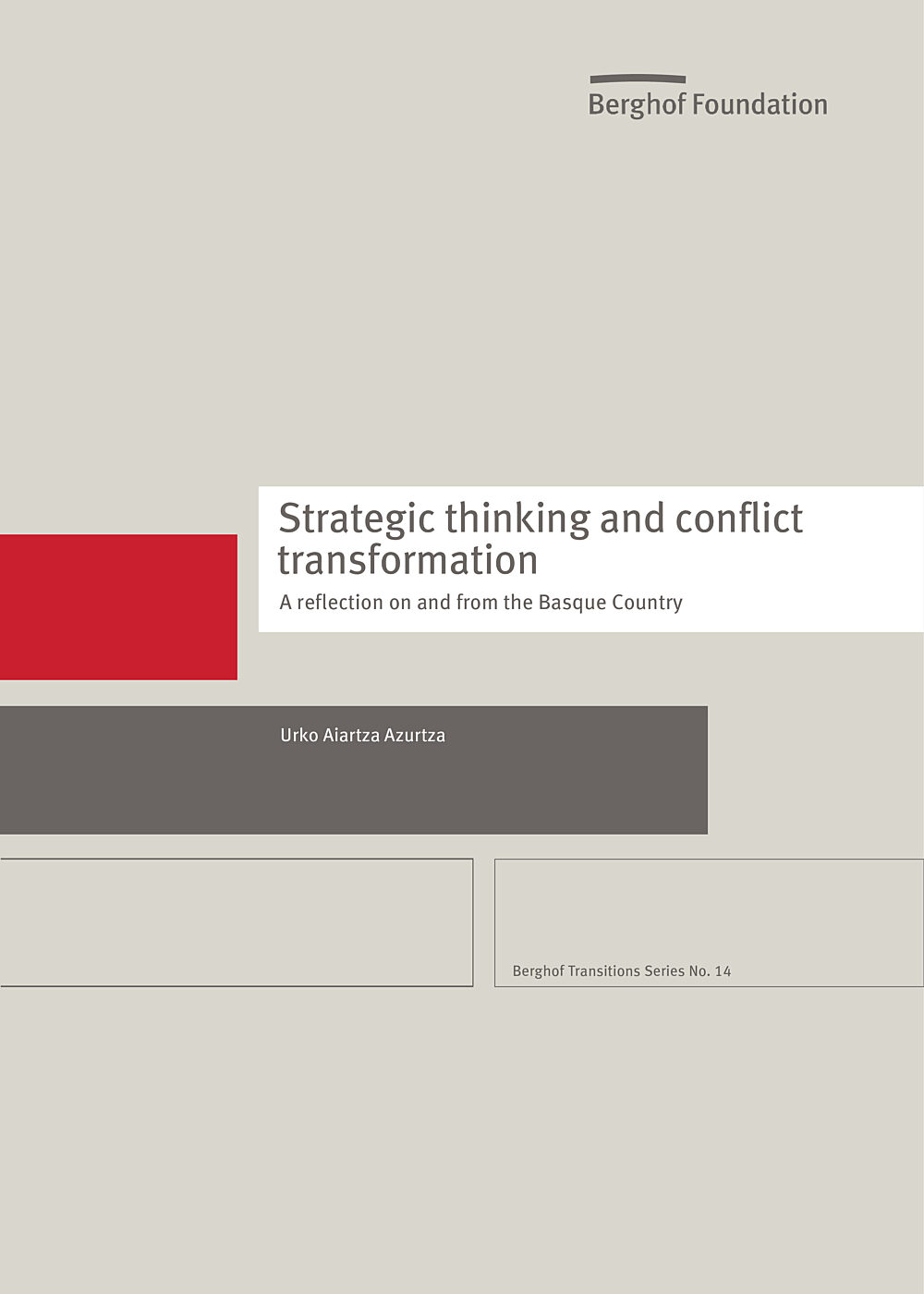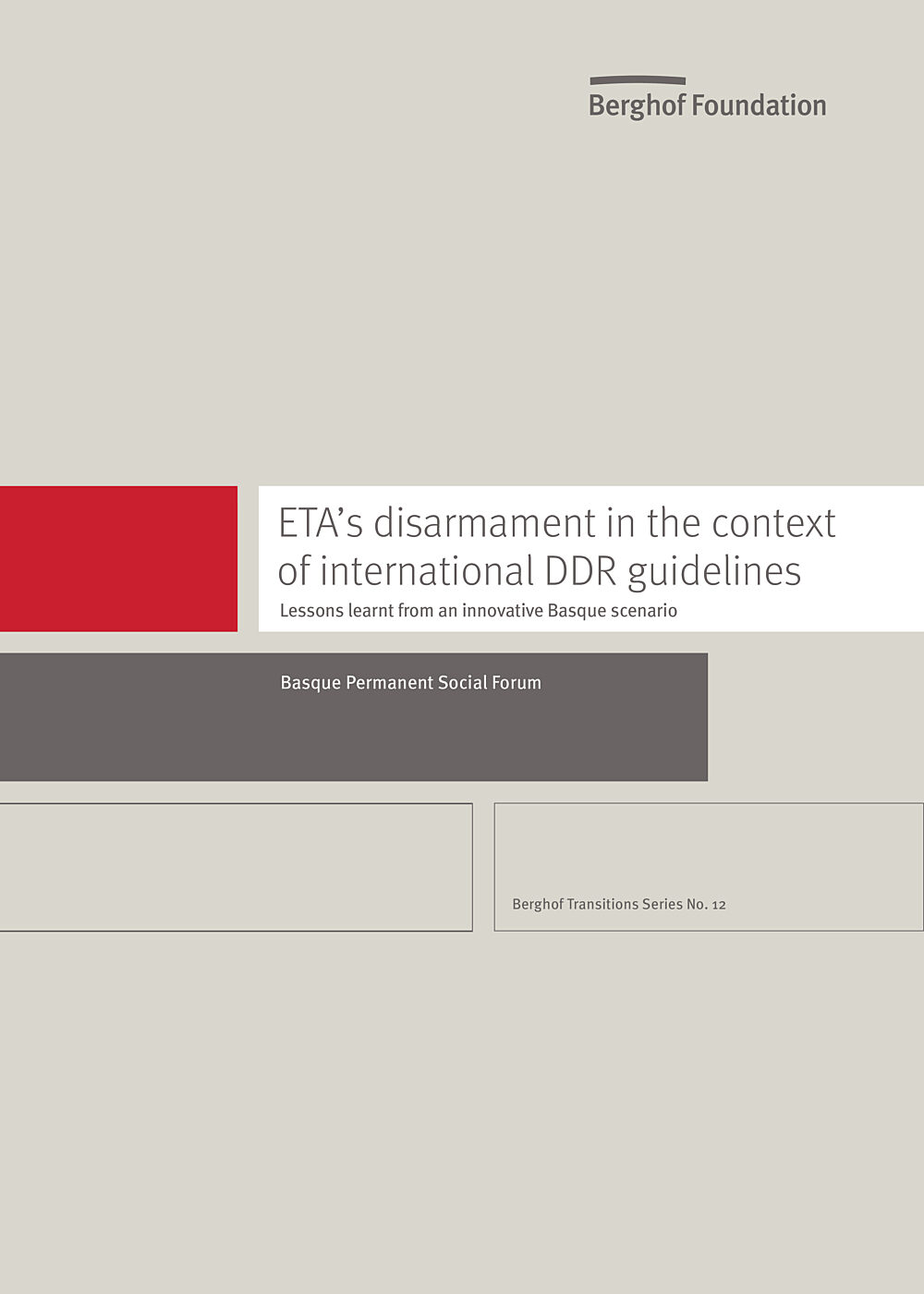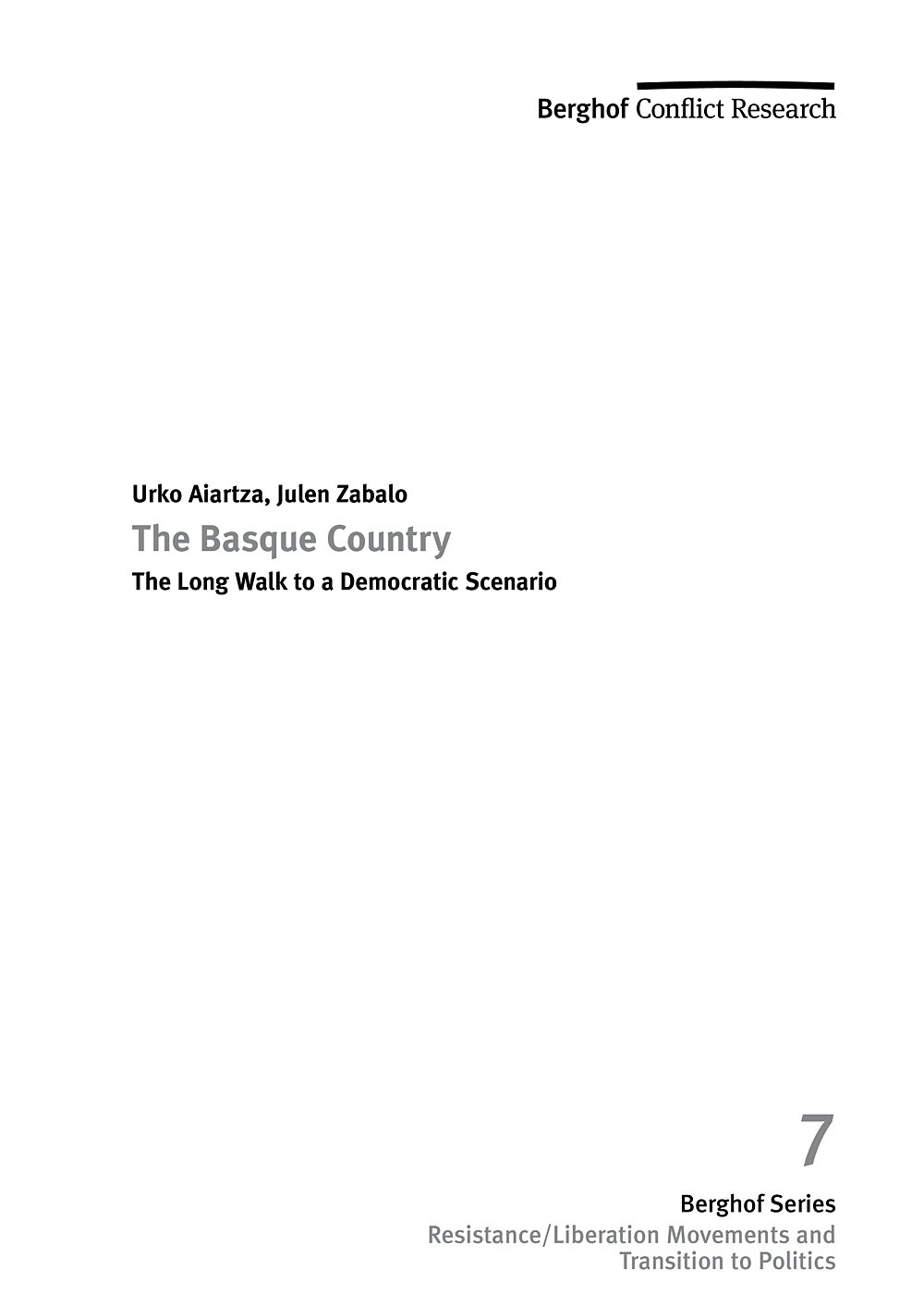Our Library
Explore our publications, from research papers and series to educational materials, covering all aspects of conflict transformation and peace promotion.

Strategic thinking and conflict transformation: A reflection on and from the Basque CountryTransitions Series No. 14
The disarmament and dissolution of the Basque separatist group Euskadi Ta Askatasuna, better known under its acronym ETA, is a unique example of a creative and unilateral transition to end armed conflict. After the collapse of the negotiation process between the Spanish government and ETA in 2006, an internal debate within the Basque pro-independence movement led to a change of strategy. The new direction eventually resulted in the disarmament and dissolution of ETA in May 2018. How did it come about and what lessons can be drawn from this case for other conflicts? This report looks at these questions in detail, based on in-depth interviews with actors who took part in this democratic transition process as well as on the direct involvement and experiences of the author himself. Urko Aiartza previously coauthored another Transition Series report on the Basque peace process, covering the 1958-2007 period and the various attempts at negotiation between ETA and the Spanish Government (Aiartza and Zabalo 2009).
- Year2019
- Author(s)Urko Aiartza Azurtza

ETA’s disarmament in the context of international DDR guidelines: Lessons learnt from an innovative Basque scenarioTransitions Series No. 12
This report presents a unique perspective on a unique experience that can inspire local and international peacebuilding practitioners in many parts of the world where armed conflicts are still raging or where peace processes are grappling with the intricacies of disarmament, demobilisation and reintegration (DDR) processes.
- Year2017
- Author(s)Basque Permanent Social Forum

The Basque Country: The Long Walk to a Democratic ScenarioTransitions Series No. 7
The objective of the present study is to analyse the evolution of the conflict between the Spanish state and the Basque Country, from the creation of Euskadi Ta Askatasuna (ETA - Basque Country and Freedom) in 1958 to the present, from the point of view of the pro-independence forces. We will start with a quick overview of the origins of the conflict, before presenting the formation and development of the so-called “abertzale left” (Ezker Abertzalea) – which could be translated, and will be at times referred to here, as the patriotic left, nationalist left or pro-independence left. We will also look at the various phases of the search for a solution to the conflict through dialogue and negotiation. Although we will mention the relationship between the northern territories of the Basque Country and France as part of the historical analysis, we will not be studying the development of the nationalist and identity movement in the north. Instead, we will focus here on the conflict between the Spanish state and the Basque Country.
- Year2010
- Author(s)Urko Aiartza Azurtza, Julen Julen Zabalo